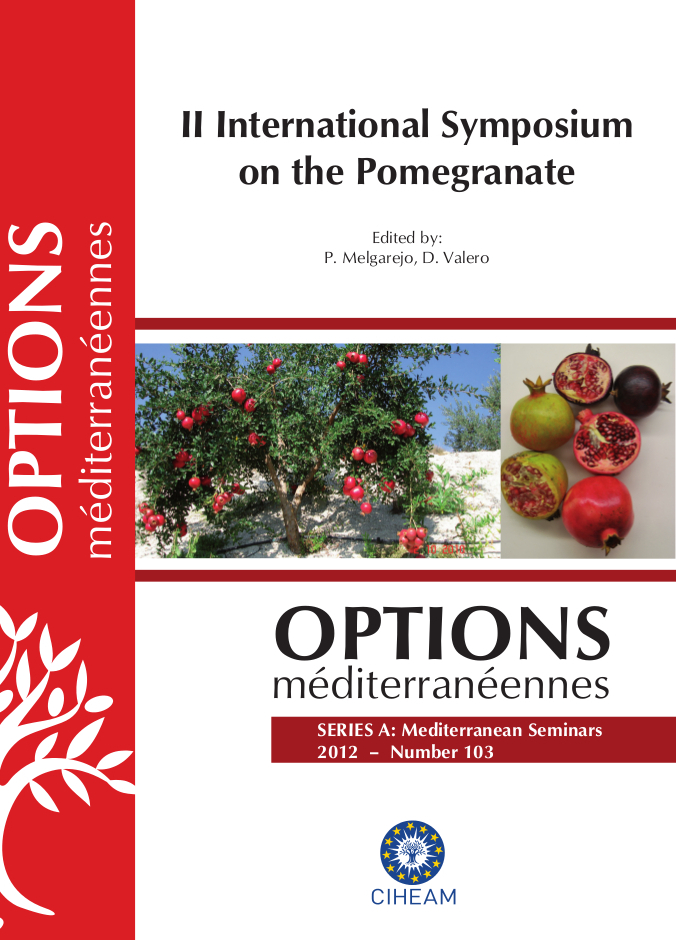| Article précédent | p. 225-227 | Article suivant |
Reduction of chilling injury and maintenance of fruit quality after pre-storage salicylic acid application on Iranian pomegranates
Pomegranate is one of the most popular fruit in Iran being consumed as fresh arils. However, pomegranates are highly perishable fruit due to weight losses, decay and mainly chilling injury symptoms (CI) when stored below 5°C. With the aim to reduce CI in pomegranate (Punica granatum cv. Malas Saveh), the fruits were treated with salicylic acid (SA) at different concentrations (0.7, 1.4 or 2.0 mM), then stored at the temperature of 2°C for 3 months (to stimulate low temperature damage). SA treatments, especially at 2 mM concentration, were highly effective in reducing CI and electrolyte leakage in the husk of pomegranate, as well as the ascorbic acid loss compared with that observed in control fruit. In addition, no significant changes were observed in total soluble solids and total acidity, during storage for any treatments, with the only exception of total acidity in 1.4 mM SA-treated, which was rather high. Results found here showed that PAL activity increased during prolonged cold storage although the SA-treatment reduced those increases.
- [ Afficher ]
- [ Télécharger ]
- [ Exporter la citation ]
Vous pouvez télécharger la citation au format :
- [ Imprimer ]
-
Mots-clés
GRENADE FRUITSCiter cet article
Serrano M., Sayyari M., Díaz-Mula H.M., Valverde J.M., Valero D. Reduction of chilling injury and maintenance of fruit quality after pre-storage salicylic acid application on Iranian pomegranates. In : Melgarejo P. (ed.), Valero D. (ed.). II International Symposium on the Pomegranate. Zaragoza : CIHEAM / Universidad Miguel Hernández, 2012. p. 225-227. (Options Méditerranéennes : Série A. Séminaires Méditerranéens; n. 103). 2. International Symposium on the Pomegranate, 2011/10/19-21, Madrid (Spain). http://om.ciheam.org/om/pdf/a103/00006952.pdf



